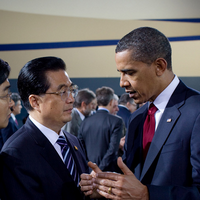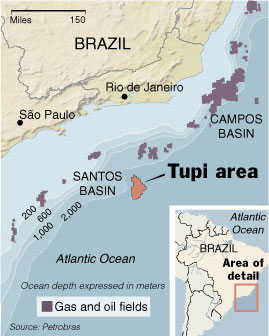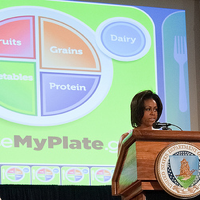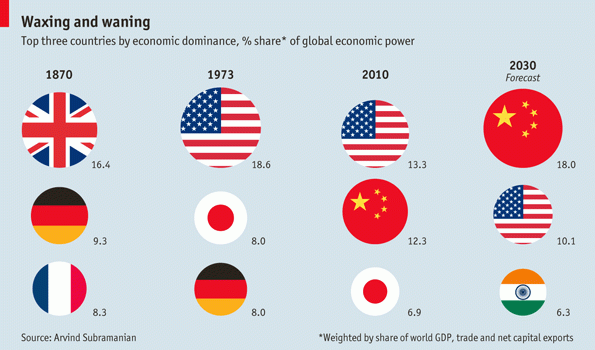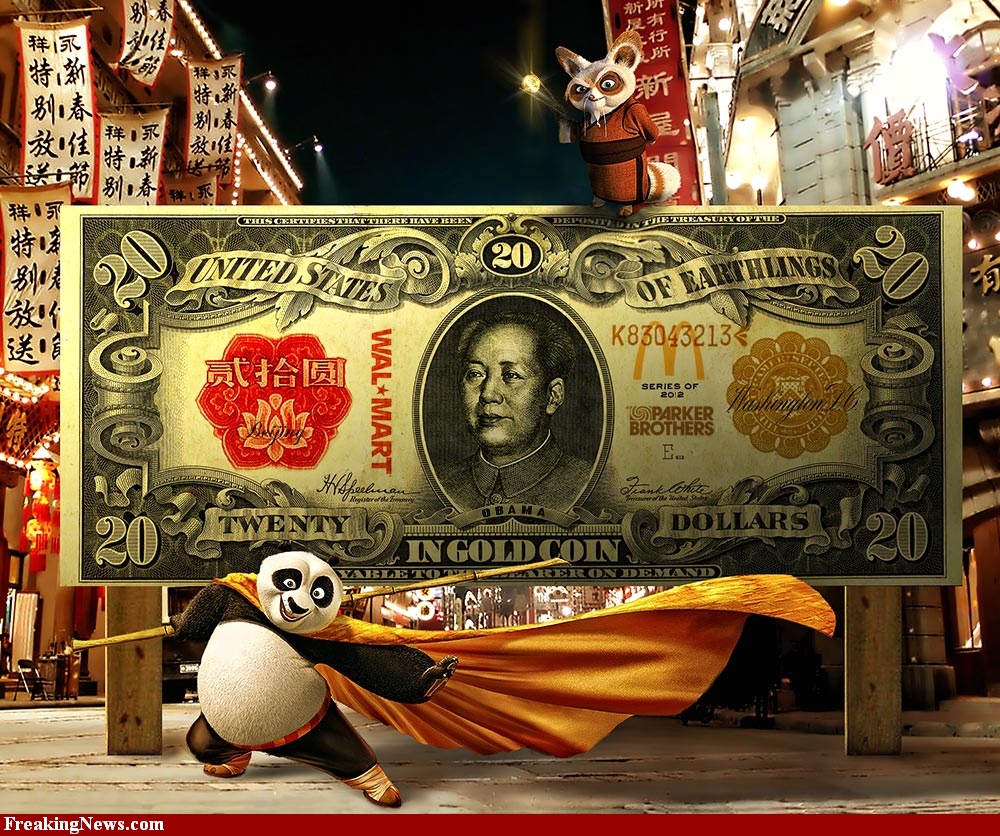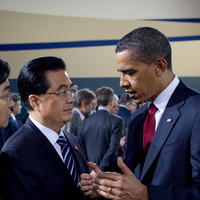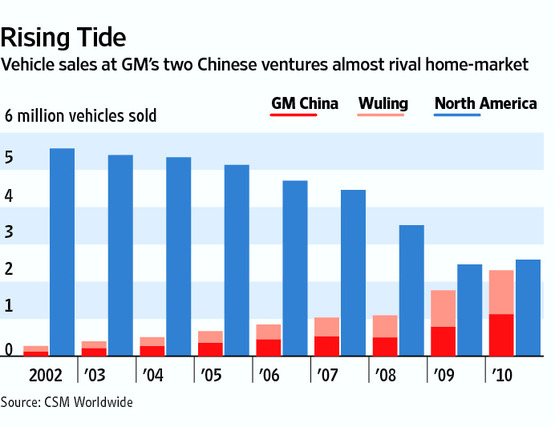 Got this by way of Thomas Friedman's Sunday NYT column, which is pretty good (for a blog post!), but the direct source approach is much better. Still, Friedman's upcoming book on fixing America couldn't be better timed, so expect another mega-bestseller there.
Got this by way of Thomas Friedman's Sunday NYT column, which is pretty good (for a blog post!), but the direct source approach is much better. Still, Friedman's upcoming book on fixing America couldn't be better timed, so expect another mega-bestseller there.
Rogoff's point is simple but very revealing: we've all known this crisis to be a financial one versus the usual biz cycle. Recovering from biz-cycle contractions is historically a quick affair, but recovering from a financial crisis is typically more the 5-7 years horizontal scenario. Rogoff's key insight is to state the obvious (for most of us consumers): the "recovery" of the business cycle has already arrived and it changed nothing for most people, because the hangover is a long-term credit contraction - i.e., the huge deleveraging.
Many commentators have argued that fiscal stimulus has largely failed not because it was misguided but because it was not large enough to fight a “great recession.” But in a “great contraction,” problem No. 1 is too much debt. If governments that retain strong credit ratings are to spend scarce resources effectively, the most effective approach is to catalyze debt workouts and reductions.
Governments, for example, could facilitate the writedown of mortgages in exchange for a share of any future home-price appreciation. An analogous approach can be done for countries. For instance, rich countries’ voters in Europe could perhaps be persuaded to engage in a much larger bailout for Greece (one actually big enough to work), in exchange for higher payments in 10 to 15 years if Greek growth outperforms.
Is there any alternative to years of political gyrations and indecision?
I have argued that the only practical way to shorten the coming period of deleveraging and slow growth would be a sustained burst of moderate inflation, say, 4 per cent to 6 per cent for several years. Of course, inflation is an unfair and arbitrary transfer of income from savers to debtors. But such a transfer is the most direct approach to faster recovery. Eventually, it will take place one way or another, as Europe is painfully learning.
I feel this personally in spades: built a nice big house in 05-06 at the height of the bubble (of course, I walked away from the old house with an inflated sum, so no complaints), so the house is priced in that way - as is my mortgage. At the time, no problem, because I'm getting paid in a bubblicious way.
Then the crisis. All of a sudden everyone says my labor is worth a whole lot less. Still love me and the work, just want to pay a lot less. Everybody is doing this, except my mortgage holder. He wants that to stay the same.
I'm lucky. Despite losing a ton of income over the past three years, I've scrambled and replaced the vast majority. I have to work three times as hard for 5 times as many customers, but I'm managing because I'm not reliant on any one job and I'm willing to hustle.
So I do the right thing and don't strategically default on a mortgage, which is tempting, not because I can't pay it because I can - and am. It's tempting because, geez, why should I pay off this debt honorably across this long crunch while so many others get help or simply run away? Because when I do, I subsidize all their behavior. If I strategically default, I suffer some serious inconveniences, but I can put us in a rental tomorrow for a fraction of what I'm paying on my mortgage. You hear these tales all the time, but usually from couples with few or no kids, because making that sort of move would be a mega-bitch for a family of 8.
But I built a big house (six kids, go figure) and I'm above the usual government help parameters, so - again - I do the right thing but feel mightily screwed by the turn of events. I keep wondering, where's my haircut - you know, the one everybody else seems to be receiving?
Worse, I have a White House that claims I'm the problem because I don't pay enough taxes and so it wants to soak me because that's an evil state of affairs. Funny thing is, I pay the Fed a whopping sum every year - about three times as much as my dad ever made in a year while he supported us seven kids. So naturally, when more than one out of every three dollars I make goes to the government, I feel like I'm supporting all sorts of programs for the needy, plus I'm doing the right thing by the mortgage, plus I keep up my charity donations, plus I pay 3 private grade school tuitions (saving the public schools) and two public college tuitions (eldest daughter and wife). I don't ask for any hand-outs from the government. Hell, I fund them and am glad to do so. But then I'm told I'm the reason why the government is so in debt (not enough taxes from the "rich") and yet I'm the dupe who continues honoring that mortgage from another era while paying for the bail-outs of those who can't. And you know, I don't feel like I'm the problem - or evil for doing all that.
In short, I'm doing everything I can to help this economy. I'm working my ass off, I'm honoring all long-term debts and keeping myself out of any short-term credit. But you know what that takes in this economy? It means I am as stingy as possible on consumer spending. It means I put off business investments for as long as possible. It means I've got nothing for venturing investments. It means I'm more incentivized than ever to stuff as much into retirement funds to avoid the tax man. It means I will vote for anybody who seems to spell reasonable restraint and relief - and that sure as s--t ain't Obama.
I'm not a Tea Partier. I'm very middle-of-the-road: a conservative Democrat on domestic and a liberal Republican on foreign. I crave compromises in Washington because our political elite's inability to make those deals happen reasonably means I compromise across the board. They do nothing to lift the economy out of its doldrums and I reciprocate. Everything I read from them says, "Screw you" and I can't help wishing them the same.
There's your national angst in a nutshell. I've been laid off. I've had my salary cut plenty of times. I've been asked to work twice as much for half as much money. I've seen hours slashed. I've had to arrange my own health insurance for the first time in my career. Moreover, virtually every risk I once shared with employers has, over the years, shifted to me as an individual. As somebody who studies globalization, I've learned to accept that tough reality, because the economic models we relied upon before globalization went big time are now unsustainable. I don't regret that transformation, because it's part of the globalization process that's lifted hundreds of millions out of poverty globally. But it does mean this country needs to retool most of how it's dealt with economic "losers" and those made vulnerable by these changes. But Washington seems clueless in this regard, with everybody holding firm when a bit more imagination is needed (my column tomorrow).
So yeah, as a small businessman (Barnett Consulting), I've had it all across my various endeavors across this Second Great Contraction - sometimes voluntarily but oftentimes not. Everybody has had to tightened up dramatically - that's the basic inescapable reality in this business environment.
Yes, I've been lucky because I never had all my eggs in any one basket, but I survive only because I've refused to lay down. I lose one job (and I've lost several since 2008), I go out and immediately get two or three more - because that's the terrible math.
So - again- I do the right thing. I honor all my obligations and simply work that much harder. But no, I have no optimism about the future of our economy right now. I don't how I could. I know what I know about globalization and America's long-term strengths, but I look at Washington and I see clueless politicians with no business experience spending all their time trying to tear each other down and I wonder why I must suffer these fools.
I don't have any choice. We made the "mistake" of having three kids. We made the "mistake" of adopting three needy kids from around the world (there are worse ways to spend your money, but it's essentially my helping the world without the same tax breaks as when I give to international charity X). I built that nice house (which I love, BTW) in a nice school district (so I don't pay tuition to my son's excellent public HS, which I support with property taxes, even as I privately fund his show choir's appearance at the London Olympics next summer because that's what excellent public HS's do - damn it!). Frankly, I am very happy with my family's existence here in Indy, which is a state that's cheap but well run (and yes, I would have liked to see Mitch Daniels run).
But I am plenty angry about the economy and the place it has put me in. I am forced to scramble non-stop. I hustle like a maniac. I am full of angst and it's mostly about debt (what I honor while others do not, and what I work like a demon to avoid, but honestly, what's the value of a stellar credit rating at this point - except to subsidize others?). I pay huge taxes and am denied any haircut-like relief on my mortgage - when everything else I see in this economy has been negotiated downward to account for the new reality (I know, because I've done it myself with all sorts of counterparties).
But most of all, I f--king hate the government right now for being such incompetent boobs. I would be happy to see them all lose in 2012 - and will vote that way.
 Thursday, November 10, 2011 at 1:59PM
Thursday, November 10, 2011 at 1:59PM  China,
China,  US,
US,  global economy | in
global economy | in  Tom video,
Tom video,  Tom's speaking engagments,
Tom's speaking engagments,  Wikistrat |
Wikistrat |  Email Article |
Email Article |  Permalink |
Permalink |  Print Article
Print Article 








